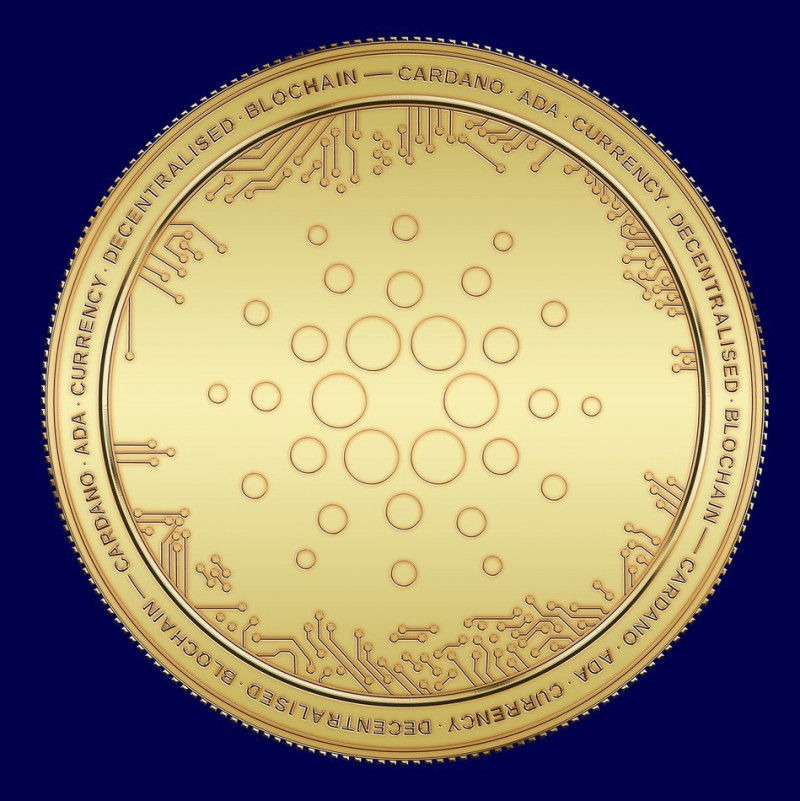Ethereum killer: "Die Blockchain, die nach einem wissenschaftlichen Ansatz entwickelt wurde". Ja, die Blockchain wurde von einem Team von Wissenschaftlern, Ingenieuren und Akademikern entwickelt, die sich zum Ziel gesetzt haben, eine skalierbare, nachhaltige und robuste Blockchain zu entwickeln. Hinter dieser für Investoren beruhigenden Aussage steht eine Organisation, die sich um die Entwicklung ihrer eigenen Blockchain bemüht. Cardano wurde 2017 von Charles Hoskinson, dem ehemaligen Mitbegründer von Ethereum, gegründet. Es ist eine dezentralisierte Open-Source-Blockchain, die aus zwei verschiedenen Schichten besteht: Eine Schicht für Transaktionen und eine andere für die Entwicklung von Anwendungen (Dapps) durch Smart Contracts. Der Gründer sah in Ethereum die Unfähigkeit, den Anstieg der Leistung des Netzwerks zu kontrollieren und gleichzeitig eine gute Leistung beizubehalten. Cardano möchte Ethereum übertreffen, indem es die Skalierbarkeitsprobleme löst, die der Gründer von Ethereum festgestellt hatte. Einige Experten glauben, dass es sich um die Blockchain der "dritten Generation" handelt. Diese Eigenschaften müssen derzeit noch bewiesen werden.
Für den Gründer ist das Blockchain-Phänomen mit dem Aufkommen von Wi-Fi vergleichbar, d.h. wie beim Internet werden die Nutzer aufhören, sich darum zu kümmern, von welchem Hersteller ihre Geräte stammen. Er hofft daher, dass jede Blockchain als gleichwertige Infrastruktur betrachtet wird und nicht als Konkurrenz, wie es heute der Fall ist. Der auf Forschung und akademischer Strenge basierende Ansatz wird nach Ansicht des Gründers zu einer breiten Annahme seiner Technologie führen. Die Organisation von Cardano besteht aus drei Einheiten:
Zusammensetzung von Cardano:
Cardano Foundation: Überwacht und verwaltet die Entwicklung des Cardano-Projekts und die regulatorischen Fragen Input Output Hong Kong (IOHK) : Die Einheit, die Cardano vorangetrieben und Ouroboros, das Protokoll für den Nachweis des Einsatzes, entwickelt hat. Ziel ist es auch, neue kryptographische Werkzeuge und Verfahren zu entwickeln. Emurgo: Eine Einheit, die Unternehmen, Firmen, Start-ups und Organisationen ermutigt, Cardano einzuführen
:
Die Werteinheit von Cardano ist das "ADA"-Token, das es ermöglicht, Wert von Portfolio A zu Portfolio B zu senden, aber auch die Transaktions- und Netzwerkgebühren zu begleichen. Um neue Blöcke zu erstellen, verwendet Cardano den Proof-of-Stake (PoS)-Konsensusalgorithmus, der es ermöglicht, Transaktionen im Netzwerk über Stake Pools zu validieren.
...
 CARDANO (ADA/USD)
CARDANO (ADA/USD) 

